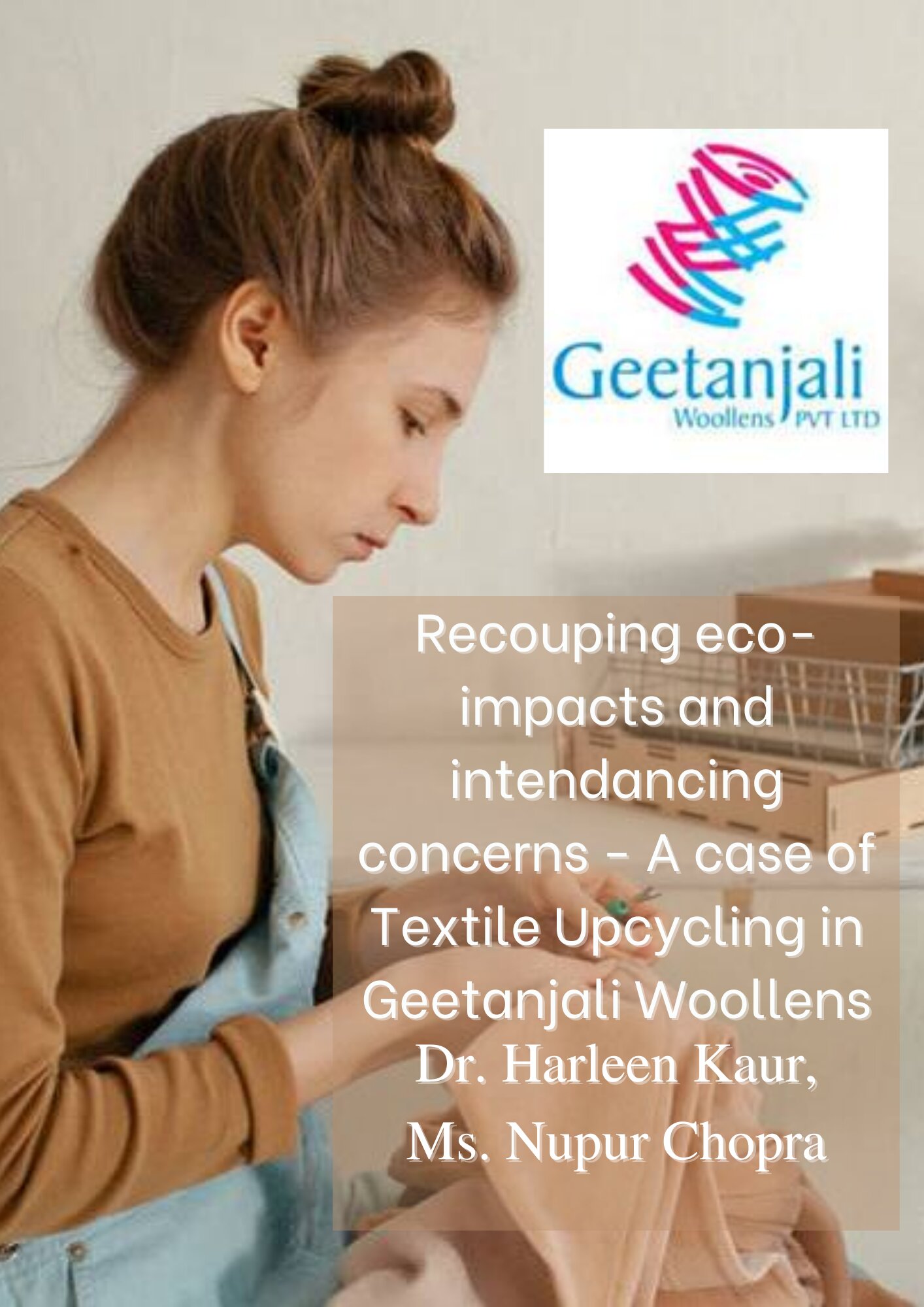
 Case Study
Case StudyRecouping eco-impacts and intendancing concerns - A case of Textile Upcycling in Geetanjali Woollens
Sustainability had become a buzzword in the Apparel, and Textile industry since the revelations regarding its environmental impact took the shape of fierce discussions at various platforms, followed by the search for remedial actions. Textile and apparel industry, a US $ 3 Trillion Global industry, was the second most polluting industry after the oil industry and accounted for 10% of global carbon emissions.
This case study highlights, how Geetanjali texticles, which has always upheld the principles of environmental and social responsibility and cultivated upcycling (reprocessing and remanufacturing) at its core faces the challenge of sustainable manufacturing, which is no longer a discretionary option- it was the need of the day and a mandate for the future. But, the international trade of mechanically recycled products had become complicated with rigid regulations and technical barriers. There were certain limitations that upcycled products had which surfaced as minor product inconsistencies, resulting in customer concern. Business growth with sustainability goals had proved to be a yielding proposition for the company since its inception; however, holding on to it was now becoming a challenge.
The case study discusses the challenges and concerns of the general manager. The dilemma between the business focus, and the buyer acceptance norms, that needed change. The concerns of CEO to address the non-conformances and propose long-term strategic options to deal with buyer concerns and acceptability
-
 Pub Date:29 Aug 2018
Pub Date:29 Aug 2018 -
 Source:ICRC
Source:ICRC -
 Discipline:Marketing Management,Strategic Management,Financial Management,Consumer Behavior,Business Ethics,Family Business
Discipline:Marketing Management,Strategic Management,Financial Management,Consumer Behavior,Business Ethics,Family Business -
 Product#:1015
Product#:1015 -
 Keywords:Textile, Woollens,upcycling, ecoimpact, environmental regulations,Sustainable manufacturing ,Biocides Regulation (Regulation (EU) ,biocidal products
Keywords:Textile, Woollens,upcycling, ecoimpact, environmental regulations,Sustainable manufacturing ,Biocides Regulation (Regulation (EU) ,biocidal products -
 Length:Pdf : 8 page(s) , Doc : 8 page(s) ,
Length:Pdf : 8 page(s) , Doc : 8 page(s) ,
 Case Study
Case Study